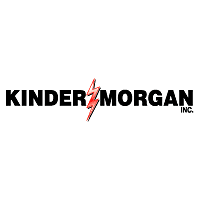Exchange-traded funds offer a convenient way to invest in sectors or niches that interest you. If you’d like to add some newly issued stocks to your portfolio, but don’t have the time or expertise to hand-pick a few, the First Trust U.S. IPO Index ETF could save you a lot of trouble. Instead of trying to figure out which companies will perform best, you can use this ETF to invest in lots of them simultaneously.
The basics
ETFs often sport lower expense ratios than their mutual fund cousins. The First Trust ETF’s expense ratio — its annual fee — is 0.60%. The fund is fairly small, too, so if you’re thinking of buying, beware of possibly large spreads between its bid and ask prices. Consider using a limit order if you want to buy in.

Why IPOs?
Why invest in IPOs? Well, it’s actually quite reasonable to avoid them, since on average, newly public stocks tend to underperform. Still, some do quite well, and sometimes, it’s best to invest a little after they debut.
More than a handful of newly issued stocks had solid performances over the past year. High-end fashion retailer Michael Kors Holdings Ltd (NYSE:KORS), which went public in 2011, surged 35%. It has been eating rival Coach’s lunch lately, in part, due to its lower-priced “Michael” line. In its latest quarter, Michael Kors Holdings Ltd (NYSE:KORS)’ revenue popped 55%, earning it a “Strong Buy” rating from analysts at Zacks. The company has been profiting from a partnership with Fossil, and is expanding domestically. Bulls look forward to its growth in China, as well.
Phillips 66 (NYSE:PSX), spun off from ConocoPhillips, jumped 34%. Its last quarter featured a drop in net income and shrinking refinery margins. Bears worry about threats from hurricane season, or even a proliferation of electric cars reducing demand for oil. Interestingly, Phillips 66 (NYSE:PSX) has already generated its own spinoff, in Phillips 66 Partners. The difference between domestic and global oil prices influences profitability for companies such as Phillips 66 (NYSE:PSX). The stock yields about 2.2%.
Kinder Morgan Inc (NYSE:KMI), a pipeline giant, gained 14%, and yields about 4.3%, despite its reputation having taken a hit after several leaks. The company is looking to expand its capacity and capitalize on the boom in oil sands production. Its last quarter was solid, in part, due to its great diversified businesses, but some worry about it growing too aggressively, and perhaps not being able to sustain its dividend.
AbbVie Inc (NYSE:ABBV), which only began trading early this year, is up more than 20% over its opening price. Recently split off from Abbott Labs, AbbVie Inc (NYSE:ABBV) focuses on pharmaceuticals, while Abbott focuses on medical, diagnostic, and nutritional products. In AbbVie’s recent second quarter, revenue rose 4.4%, while net income took a 16% hit, though its blockbuster drug Humira (the world’s biggest-selling prescription drug), which tackles arthritis and more, delivered well, with sales up 16%, to $2.6 billion for the quarter. (That’s a run rate of more than $10 billion annually!) Some worry about AbbVie Inc (NYSE:ABBV)’s debt load, though, and about its dependence on Humira for a big chunk of revenue, especially with Humira’s patent protection expiring in the near future. Bulls look to its pipeline for future growth. The stock yields about 3.7%.
The big picture
A well-chosen ETF can grant you instant diversification across any industry or group of companies — and make investing in and profiting from it that much easier.
The article These IPO Stocks Have Been Winners originally appeared on Fool.com and is written by Selena Maranjian.
Longtime Fool contributor Selena Maranjian, whom you can follow on Twitter, holds no position in any stocks mentioned. The Motley Fool recommends Coach, Fossil, and Kinder Morgan. The Motley Fool owns shares of Coach, Fossil, and Kinder Morgan.
Copyright © 1995 – 2013 The Motley Fool, LLC. All rights reserved. The Motley Fool has a disclosure policy.





